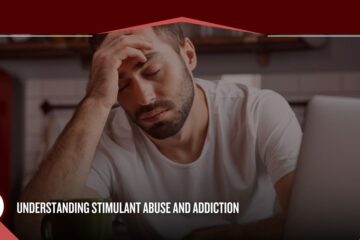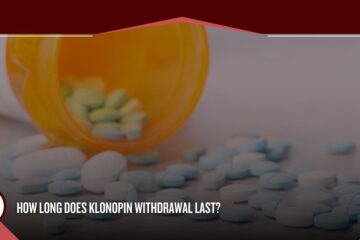It’s high time we got to the heart of the matter—literally. With escalating drug abuse rates worldwide, it’s crucial to comprehend the intense, often irreversible damage it can inflict on one of our most vital organs—the heart. In this comprehensive guide, we dig deep into how drug abuse damages the heart, examining the immediate and long-term consequences while shedding light on preventative measures, rehabilitation options, and the importance of early intervention.
The Heart and Drug Abuse: Everything You Need to Know
The heart, a remarkable muscular organ, diligently pumps blood throughout our bodies, supplying oxygen and nutrients to every cell. However, it’s also a sensitive organ susceptible to damage, particularly from drug abuse. Drugs can act as formidable foes to the heart, disrupting its rhythm, damaging its structure, and hindering its function.

Drug-induced heart damage is no myth; it’s a harsh reality many drug abusers face. What might seem like a momentary high can transmute into a life-threatening condition, landing one in the confines of a safe and supportive place like a San Antonio rehab.
How Different Drugs Affect the Heart
As we delve deeper into understanding how substances impact the heart, it’s essential to note that different drugs can wreak havoc in diverse ways. Let’s dig deeper!
Opiates and Opioids
Opiates, a class of drugs derived from the poppy plant, and opioids, the broader group that includes synthetic versions, have swept across the nation, causing devastation in their wake. These substances suppress the nervous system, reducing pain and inducing a state of euphoria.

But at what cost? Chronic opioid use can lead to an array of cardiac complications. It can slow the heart rate and disrupt its rhythm—a condition known as opioid-induced arrhythmia. A stay at a place like our drug rehab in San Antonio can help people struggling with this addiction find the help they need to prevent these alarming conditions.
Stimulants
Contrary to the depressant effect of opioids, stimulants like cocaine and methamphetamine jolt the body into an overexcited state. This abrupt rush can cause a rapid heart rate, increased blood pressure, and potentially life-threatening arrhythmias.
Meth, in particular, has a profound impact on the heart, leading to conditions like coronary artery disease and heart failure. For those ensnared in the grips of meth addiction, a meth detox Texas facilities offer could prove to be a lifesaver. It’s the first step to taking back control over your life.
Alcohol
Alcohol, society’s most accepted drug, is often overlooked for the immense harm it can cause. It’s not just your liver that’s at stake; alcohol can deliver a serious blow to your heart as well.
Excessive drinking can lead to alcoholic cardiomyopathy, a condition where the heart muscle weakens and fails to pump blood efficiently. Fortunately, centers such as our alcohol rehab in San Antonio provide the support and guidance necessary to overcome alcohol addiction and reduce the risk of such severe heart damage.
Other Substances
While we’ve spotlighted opioids, stimulants, and alcohol, it’s important to note that other substances can also wreak havoc on the heart. Drugs such as benzodiazepines, commonly known as “benzos,” are prescribed for anxiety but can lead to significant heart issues when misused. Regular intake of high doses can lead to a condition known as tachycardia—an unusually high heart rate. Luckily, benzo detox in Texas offers specialized programs to help individuals free themselves from the clutches of this addiction.
In the case of synthetic drugs like fentanyl, they are so potent that even a single use can result in serious heart issues or even a fatal overdose. To combat the growing crisis, fentanyl detox in Texas provides tailored detoxification and recovery services to fentanyl addicts.
Ways Drug Abuse Damages the Heart
Navigating further into the profound impacts of drug abuse, it’s essential to understand how it precisely affects our heart, the life-giving engine of our body. Drugs, whether they be stimulants, depressants, or anything in between, initiate a cascade of effects that disrupt the heart’s delicate balance.

In the sections to come, we’ll dissect the immediate fallout of drug consumption on our heart’s health, followed by the lasting, chronic impacts that these substances can induce over prolonged usage. As we delve deeper into these effects, we will also lean on hard-hitting statistical data to emphasize the real-world implications of these issues. So let’s unravel the complex interplay between drug abuse and the heart, understanding the journey from immediate effects to chronic damage.
Immediate Effects of Drug Abuse on Heart Health
At the heart of drug abuse lies a range of immediate, sometimes lethal, health effects. Let’s bullet-point these to get a clearer picture:
- Arrhythmias – Sudden abnormal heart rhythms can lead to cardiac arrest.
- Hypertension – Certain drugs cause a swift rise in blood pressure, adding strain to the heart.
- Heart Rate Fluctuations – Drugs can speed up or slow down the heart rate.
- Vascular Diseases – Drug abuse can cause blood vessel inflammation or destruction.
- Cardiac Arrest – Some drugs can cause the heart to stop abruptly.
Whether it’s a one-time occurrence or frequent use, the immediate effects can lay the groundwork for chronic, life-threatening conditions.
Chronic Consequences of Prolonged Drug Abuse on the Cardiovascular System
Over time, the heart’s battle against drug abuse can morph into a full-blown war, leading to long-term complications. These include:
- Cardiomyopathy – A broad term for diseases of the heart muscle, potentially leading to heart failure.
- Endocarditis – An inflammation of the heart’s inner lining, typically caused by infections, often seen in intravenous drug users.
- Coronary Artery Disease – A buildup of plaque in the heart’s arteries, often escalated by drug abuse, leading to a higher risk of heart attack.
- Stroke – Prolonged drug abuse can lead to clots or bleeding in the brain, causing a stroke.
These chronic conditions underscore the gravity of drug abuse and the urgent need for facilities such as heroin detox in Texas that offer structured programs to aid recovery.
Data Never Lies: The Real Impact of Drug Abuse on Heart Health
Statistics often hold the power to present a stark reality that mere words may fail to capture. When it comes to the impact of drug abuse on heart health, the numbers are alarming, a somber testament to a growing public health crisis.
According to the National Center for Drug Abuse Statistics, an estimated 37 million Americans aged 12 or older battle a substance use disorder, a number that has only grown since 2020. Delving further into specifics, a study published in the Journal of the American Heart Association revealed that young adults hospitalized with their first heart attack were almost twice as likely to have used marijuana and cocaine. In another study, the American Journal of Cardiology reported that cocaine use could increase the risk of a heart attack by 24 times within the first hour of use.

From a regional perspective, Texas, like many other states, faces a significant struggle with substance use disorders. A report from the University of Texas at Austin found that opioid-related deaths in Texas rose by 7.4% from 1999 to 2017. This rise illustrates the critical need for localized treatment and prevention resources.
These statistics and studies underscore the considerable burden that drug abuse imposes on our heart health. The numbers also serve as a compelling call to action – for preventative efforts, effective treatments, and public education – all aimed at mitigating the harm that substance abuse inflicts on our hearts and lives.
Possibility of Reversing Heart Damage
The damage done to the heart by drug abuse can seem overwhelming. However, it’s not all doom and gloom. With the right strategies, it is possible to reverse or at least mitigate some of the effects.
Lifestyle Changes
The journey to mend a heart damaged by drug abuse often begins with lifestyle changes. While it might sound cliché, adopting a healthier lifestyle can significantly mitigate the impact of drug-induced heart damage. The importance of a balanced diet, regular physical activity, and adequate sleep cannot be overstated.
Equally crucial is quitting drug use. Supportive resources, like those at centers for medical detox Texas has to offer, can provide the help individuals need to overcome their substance use disorders. Additionally, therapy and counseling can also be incredibly beneficial, helping individuals navigate the emotional landscape of recovery.
Moreover, stress management is an essential part of this process. Techniques such as mindfulness, yoga, and deep-breathing exercises can contribute significantly to reducing stress, a known risk factor for heart disease. Through these lifestyle changes, individuals can start the healing process, restoring their heart health while enhancing their overall well-being.
Medical Interventions and Treatments for Drug-Induced Heart Damage
In addition to lifestyle modifications, medical interventions play a critical role in treating drug-induced heart damage. The treatment strategy typically depends on the type and extent of the heart damage.
For instance, in cases of arrhythmias, medications or procedures like cardiac ablation can help restore normal heart rhythm. For individuals with heart failure, doctors might prescribe medications to enhance heart function and manage symptoms. In severe cases, surgical interventions, such as bypass surgery or even heart transplantation, might be necessary.
Detoxification is another critical component, especially in cases of ongoing drug abuse. For example, a person struggling with opioid abuse may benefit from the services offered at an opioid detox center in Texas. Here, individuals can receive medical supervision while the body rids itself of harmful substances, ensuring a safer and more comfortable withdrawal process.
The journey towards healing a heart affected by drug abuse is multifaceted, involving both personal changes and medical interventions. But always remember – despite the challenges, recovery is always possible, offering hope for healthier and more fulfilling lives.
Myocarditis and Drug Abuse: Unveiling the Connection
Myocarditis, a condition characterized by inflammation of the heart muscle, is typically caused by viral infections. However, what’s often overlooked is its substantial connection to drug abuse. Substances such as cocaine and methamphetamines can trigger an immune response in the body, leading to myocarditis. These chemicals induce inflammation and damage to the heart muscle, presenting yet another way how drug abuse damages the heart.

This drug-induced myocarditis sits alongside other causes, such as bacterial, fungal, and parasitic infections, as well as autoimmune diseases. But it is the avoidable nature of drug-induced myocarditis, a preventable cause rooted in a modifiable behavior, that underscores the importance of spreading awareness about the detrimental health effects of substance abuse.
By understanding this connection, we can better strategize prevention efforts, targeting not just the symptoms but the root cause itself. Hence, whether in a San Antonio rehab or a worldwide health campaign, this knowledge could prove instrumental in both treating and preventing drug-induced myocarditis.
Symptoms and Warning Signs of Myocarditis
Being able to spot the symptoms and warning signs of myocarditis is critical for timely diagnosis and treatment. This potentially life-threatening condition can manifest in various ways, often masquerading as other ailments.
Initially, myocarditis might present symptoms similar to those of the common flu, such as fever, fatigue, or muscle aches. As the condition progresses, more specific signs may appear. These can include shortness of breath, both during activity and at rest, as well as chest pain – a sharp, stabbing pain that may extend to the left shoulder and down the arm.
Rapid or irregular heartbeat (palpitations), lightheadedness, and fainting spells can also be indicative of myocarditis. In severe cases, fluid retention can lead to swelling in the legs, ankles, and feet.

However, it’s worth noting that some people with myocarditis may experience minimal symptoms or none at all. This makes regular check-ups and maintaining open communication with your healthcare provider extremely important. Especially if you’ve had a history of drug abuse, being vigilant of these symptoms can prompt early intervention, significantly improving treatment outcomes.
Drug-Induced Myocarditis vs. Other Causes
As we mentioned, myocarditis can stem from various causes. However, the understanding of how drug-induced myocarditis stacks up against other causes is crucial in the fight against heart disease.
- Viral Infections: These are the most common cause of myocarditis. Viruses like Coxsackie, Parvovirus B19, and even the recent SARS-CoV-2 virus can lead to myocarditis, causing heart muscle inflammation as the body fights off the infection.
- Drug-Induced Myocarditis: Certain substances, especially recreational drugs like cocaine and methamphetamine, can trigger myocarditis. The chemicals in these substances can induce an immune response leading to inflammation and damage to the heart muscle.
- Autoimmune Diseases: Conditions like Lupus or Rheumatoid Arthritis, where the body’s immune system mistakenly attacks its cells, can also cause myocarditis.
- Bacterial, Fungal, and Parasitic Infections: Though less common, these infections can also result in myocarditis. Organisms like Borrelia burgdorferi (causing Lyme disease) or Trypanosoma cruzi (causing Chagas disease) can lead to this heart condition.
While each case comes with its unique challenges, understanding the origins of myocarditis, including drug-induced forms, is the first step toward effective treatment and prevention. It is always critical to seek medical help if myocarditis is suspected, regardless of the cause.
Treatment Options for Myocarditis
Treatment for myocarditis depends on the cause and severity. Drug-induced myocarditis typically involves a two-pronged approach—managing heart symptoms and treating drug addiction. A combination of medications, lifestyle changes, and sometimes hospitalization is used to manage the condition. In tandem, rehabilitation programs, such as Xanax detox in Texas, provide structured recovery programs to overcome addiction.
Myocarditis is a significant example of how drug abuse can lead to serious heart conditions. It truly serves as a poignant reminder of the breadth and depth of damage that drug abuse can inflict on the heart.
Identifying Drugs That Can Exacerbate Heart Failure
As we’ve seen, drug abuse is not merely destructive in isolation—it’s particularly hazardous for those already struggling with heart conditions.

Drugs that Negatively Impact Heart Function
When it comes to the interaction of drugs with the heart, the list is rather extensive. Various substances, both prescribed and illicit, can disrupt the heart’s function in multiple ways. Let’s explore some of the key players that are known to have a detrimental impact on heart health:
- Non-Steroidal Anti-Inflammatory Drugs (NSAIDs): Over-the-counter medications such as ibuprofen and naproxen are frequently used to relieve pain. However, prolonged or high-dosage use can lead to fluid retention and increased blood pressure, both of which can exacerbate heart failure symptoms.
- Cocaine: This powerful stimulant can cause a rapid increase in heart rate and blood pressure. In some cases, it can even trigger a heart attack, especially in people who already have heart disease.
- Methamphetamines: Known as meth, this highly addictive stimulant can lead to severe cardiovascular problems. Its use can result in an irregular heartbeat, increased blood pressure, and in severe cases, heart failure or a heart attack.
- Prescription Medications: Certain classes of drugs, such as some types of antidepressants and anti-diabetic medications, can potentially impact heart function. Even some calcium channel blockers, a group of drugs often prescribed for heart conditions, can sometimes exacerbate heart failure in certain patients.
These drugs affect heart function through various mechanisms—some lead to increased heart rate and blood pressure, while others change the balance of electrolytes, affecting the heart’s electrical activity. Certain drugs can also cause inflammation of the heart muscle, or myocarditis, which can progress to heart failure if not addressed promptly.
Unfortunately, this list is by no means exhaustive. Many other substances can negatively affect the heart, highlighting the importance of careful medication management and the avoidance of illicit drug use. It’s always crucial to discuss potential risks with a healthcare provider before starting or altering any medication regimen.
Managing Drug Therapies for Individuals with Heart Failure
Careful management of drug therapies is essential for individuals with heart failure. Doctors must carefully assess the risk-benefit ratio of every medication, considering the patient’s overall health status and potential interactions with other drugs. Regular monitoring and adjustment of drug therapy can help optimize heart function and overall health.

It’s also worth noting that if the individual is dealing with drug abuse, specialized help, such as that offered in the opiate detox center Texas is proud to offer, can provide the support necessary to overcome addiction and manage heart failure more effectively.
A New Beginning: Overcoming Drug-Induced Heart Damage
We’ve navigated the damaging effects of drug abuse on the heart, the ominous statistics, and the wide-ranging drug-induced heart conditions. The question is, how do we move forward? Understanding how drug abuse damages the heart is half the battle won. The next step is to raise awareness about the importance of preventing drug abuse and to stress the potential for recovery and a healthier life post-addiction.
Help is available in many forms. From lifestyle modifications and medical interventions to support groups and comprehensive rehabilitation programs, recovery is within reach. Contact our medical detox facility in Texas and let our experienced professionals guide you on your path to recovery.
It’s essential to remember that every heartbeat matters, and so does every decision impacting its health. So let’s pledge to stay informed, keep in mind how drug abuse damages the heart, make healthier choices, and promote awareness about the debilitating effects of drug abuse on this precious organ. Because when it comes to the heart, it’s always better to be safe than sorry.





